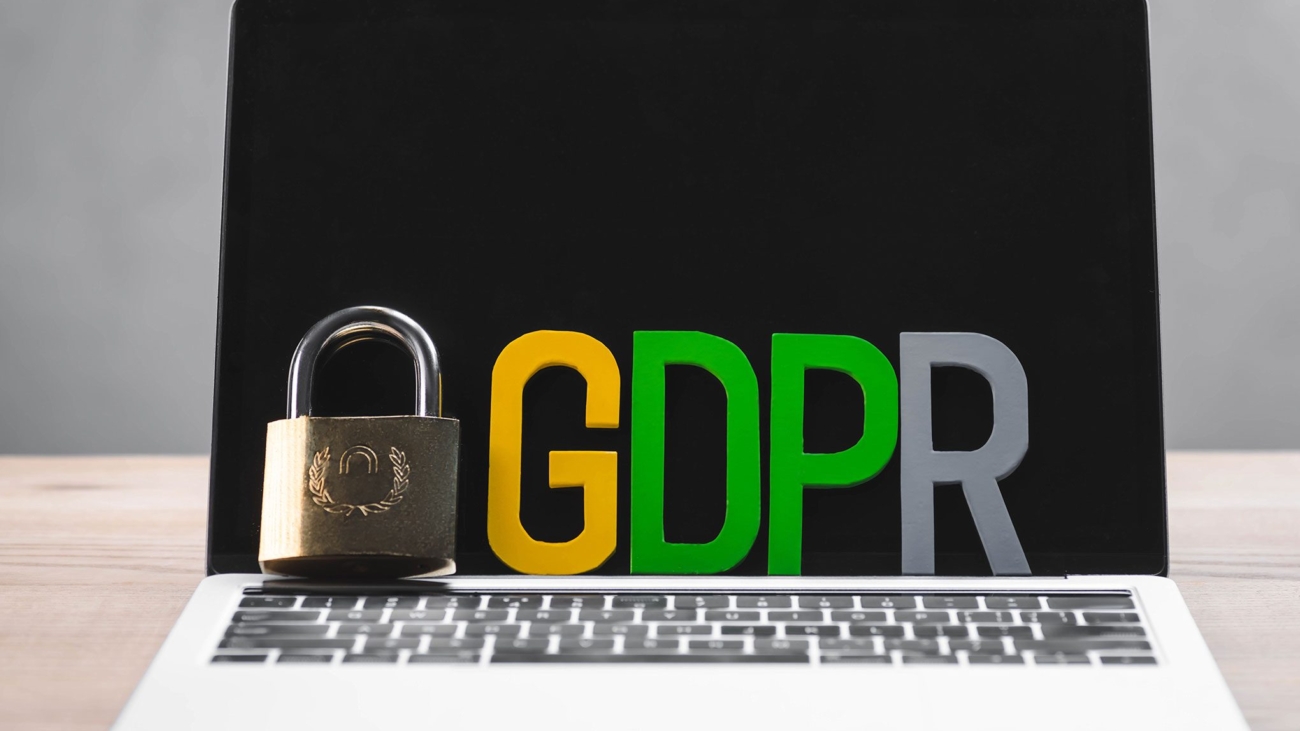1- Introduction to GDPR
To strengthen privacy safeguards and protect people’s personal information, the European Union (EU) passed the landmark General Data Protection Regulation (GDPR). In order to ensure uniformity and reinforce individual rights in the digital age, this regulation seeks to establish a single legal framework for data protection across all EU member states.
On April 14, 2016, the GDPR was formally adopted, and on May 25, 2018, it became operative. The GDPR is a directly applicable regulation, in contrast to earlier data protection directives that needed to be incorporated into national laws by individual member states. Although member states still have some latitude to modify particular provisions in particular areas, this means that it applies consistently throughout all EU nations without the need for additional national legislation.
Globally, GDPR is regarded as one of the most extensive and strict data protection regulations. It has impacted data protection laws in numerous other nations and established a new benchmark for how businesses handle personal data.

What is GDPR
Within the EU and the European Economic Area (EEA), the collection, processing, storage, and protection of personal data are governed by the General Data Protection Regulation (GDPR). It has an impact on organizations all over the world that handle or process the personal data of EU citizens, so its reach goes beyond EU borders. This implies that any business that handles the data of EU citizens, no matter where they are located, has to abide by GDPR.
Any information pertaining to an identified or identifiable natural person (referred to as the “data subject”) is considered personal data under the GDPR. This encompasses a wide variety of identifiers, including:
- Name, address, birthdate, phone number, and email address are examples of basic identity information.
- Device IDs, cookies, and IP addresses are examples of online identifiers.
- Financial data: bank account numbers and credit card information.
- Biometric information, medical records, racial or ethnic origin, religious convictions, and political views are examples of sensitive personal data.
- Job title, qualifications, and work history are examples of employment and educational details.
GDPR places a strong emphasis on the idea of Privacy by Design and Default, which mandates that companies put data security measures in place right away rather than after the fact. Employing strategies like encryption, pseudonymization, and access controls to protect personal data, businesses must make sure that data protection is a core part of their operational framework.
The seven guiding principles of the GDPR form the basis of all data protection initiatives:
- Lawfulness, Fairness, and Transparency: Businesses must handle personal data in a way that is legal, equitable, and open. They are required to notify people about the collection, use, and storage of their data.
- Limitation of Purpose: Information should only be gathered for clear, specific, and justifiable purposes. Without additional consent, it cannot be used for purposes other than those listed.
- Data Minimization: Businesses should only gather and handle the bare minimum of information required to achieve their declared goals.
- Accuracy: Personal information must be kept current and accurate. Companies are required to take appropriate action to correct information that is erroneous or lacking.
- Storage Restrictions: Information shouldn’t be retained for longer than is required. When data is no longer required, organizations must safely delete it and set clear retention policies.
- Integrity and Confidentiality (Security): To prevent unwanted access, loss, or damage, personal data must be processed securely. Putting in place strong organizational and technical security measures is part of this.
- Accountability: Businesses are in charge of adhering to GDPR, and they have to prove it with policies, records, and continuous evaluations.
The GDPR has changed the data protection landscape and established privacy as a fundamental human right. In order to comply with the principles and requirements of the regulation, organizations must take the initiative to do so. Heavy fines of up to €20 million or 4% of the company’s yearly worldwide revenue, whichever is higher, may be imposed for noncompliance. In addition to monetary fines, noncompliance can harm a company’s brand and undermine customer confidence.
GDPR continues to be a vital law for companies, governments, and individuals due to the growing dependence on digital technologies and data-driven decision-making. Organizations can promote a culture of accountability, security, and transparency by adopting GDPR principles, which will ultimately increase trust in the digital economy.

The purpose and objectives of GDPR
When the General Data Protection Regulation (GDPR) was first introduced, its main goals were to improve data protection, guarantee transparency, and give people more power. These objectives are essential to the regulation’s efficacy and its ability to impact data privacy laws globally. The main objectives of GDPR are detailed below
Homogeneous protection
By establishing a single, uniform regulatory framework for all EU member states, GDPR removes differences in national data protection laws. This guarantees uniform protection of personal data, lowering legal complexities and uncertainty for both individuals and companies doing business in the EU. GDPR improves cross-border data security and avoids regulatory fragmentation by standardizing data privacy laws.
Improved responsibility
Businesses must take proactive steps to show that they are in compliance with GDPR. This entails putting in place thorough data protection policies, identifying risks through Data Protection Impact Assessments (DPIAs), and designating Data Protection Officers (DPOs) for specific data processing tasks. To guarantee continuous compliance and boost accountability in data processing, businesses must record and audit their data handling procedures.
Transparency
Organizations are required by GDPR to provide individuals with clear information about the collection, processing, storage, and sharing of their personal data. Businesses are required to give comprehensive privacy notices that outline the goals of data collection, the length of time data is stored, and individual rights. By making sure that people are aware of how their information is being used, this transparency helps to foster trust between consumers and businesses.

Simplified Legal Framework
GDPR makes compliance easier for companies that operate in several EU nations by replacing the previous Data Protection Directive (95/46/EC) with a single, directly applicable regulation. This eliminates legal ambiguities and administrative burdens, enabling organizations to adhere to a single set of regulations rather than a convoluted patchwork of national laws. Businesses can more easily handle their data protection responsibilities thanks to the simplified framework, which promotes efficiency.
Empowerment of Individuals
Giving people more control over their personal data is one of GDPR’s greatest accomplishments. Important rights consist of:
- Right of Access: People have the ability to ask for and receive information regarding the processing of their personal data.
- Right to Rectification: People have the ability to update incomplete or erroneous personal information.
- Right to Erasure (Right to Be Forgotten): People have the right to ask for their data to be deleted in specific situations, such as when it is no longer required for the original purpose.
- Right to Data Portability: People have the ability to move their personal information between controllers in a machine-readable, structured, and widely-used format.
- Right to Object: People have the ability to protest when their data is processed for particular uses, like direct marketing.
Global influence
GDPR has impacted laws all over the world and established a new standard for data privacy. Similar laws based on the GDPR’s principles have been introduced in a number of nations, including the US (CCPA in California), Canada (CPPA), and Brazil (LGPD). GDPR has pushed international organizations to adopt more robust privacy policies by promoting a culture of global data protection, thereby elevating data security to a global priority.
The extensive effects of GDPR have changed how governments, corporations, and individuals approach data protection. It guarantees that personal data is handled with the utmost security and ethical standards by emphasizing accountability, transparency, and individual rights.
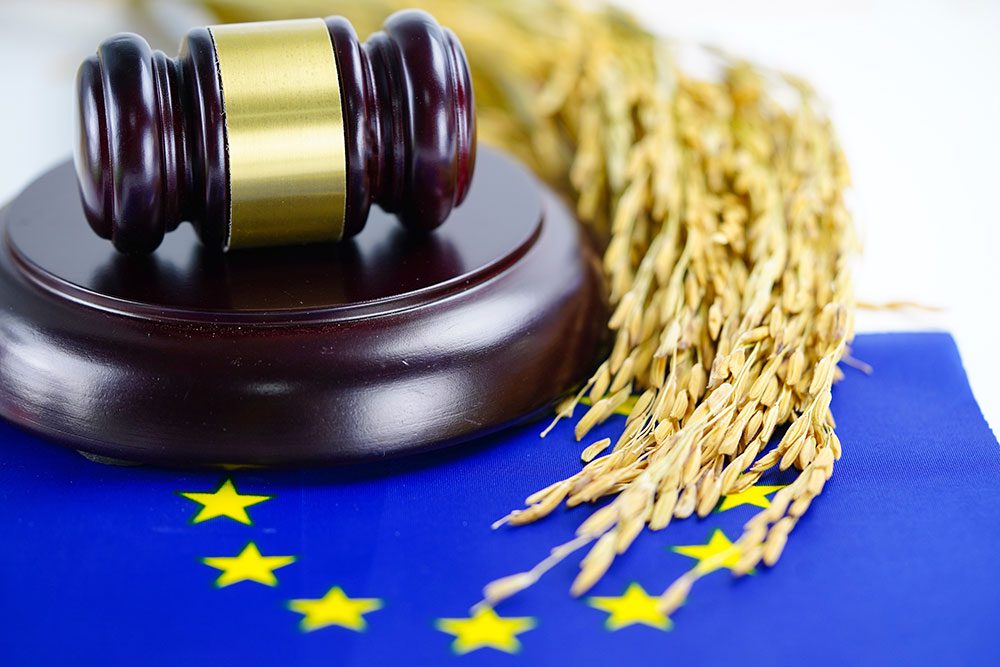
The history and evolution of data protection laws in the EU
Decades of advancements in privacy laws are reflected in the creation of GDPR:
- 1950 : Article 8 of the European Convention on Human Rights made privacy a fundamental right.
- 1981 : saw the adoption of Convention 108 by the Council of Europe, which established legal protection for privacy throughout the continent.
- 1995 : saw the introduction of minimal requirements for the protection of personal data in all EU member states by the Data Protection Directive (Directive 95/46/EC).
- 2012 : To address inconsistencies in national implementations of the Directive and technological improvements, the European Commission recommended modifications.
- 2016 : saw the adoption of GDPR, a law that replaced the Directive and took into account contemporary issues like cloud computing and big data.
- 2018 : saw the implementation of GDPR in all EU member states as well as EEA nations (Iceland, Liechtenstein, and Norway).
How GDPR differs from previous data protection laws (e.g., Data Protection Directive 95/46/EC)
By implementing more stringent data protection measures, broadening its purview, and enhancing accountability, the General Data Protection Regulation (GDPR) significantly outperforms its predecessor, the Data Protection Directive 95/46/EC. The main distinctions are listed below
Increased scope
The extraterritorial applicability of GDPR is one of the biggest changes. The GDPR applies to any business worldwide that handles the personal data of EU citizens or keeps track of their activities, in contrast to the Data Protection Directive, which was mainly applicable to organizations within the EU. This increases the regulation’s worldwide reach by requiring compliance from companies operating outside the EU that handle the data of EU citizens.
Broader definition of personal data
GDPR broadens the definition of personal data to encompass digital identifiers like IP addresses, cookies, device IDs, and biometric information in addition to more conventional identifiers like names and addresses. This expanded reach guarantees that contemporary technologies and online tracking systems are subject to data protection laws.
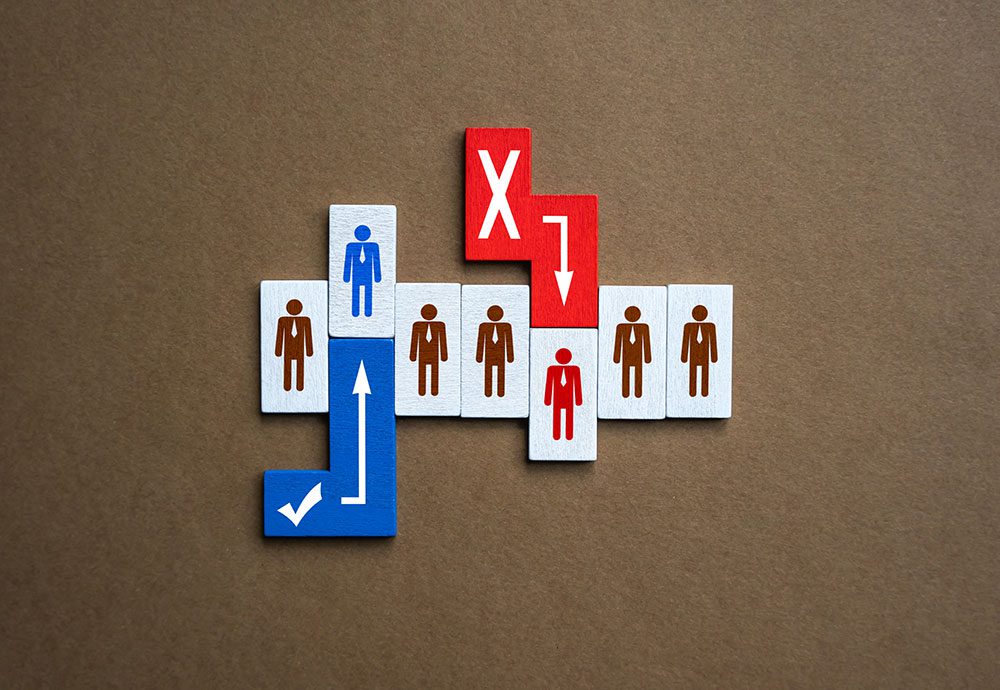
Stricter consent requirements
Consent must be freely given, explicit, informed, and revocable, according to GDPR regulations. Businesses can no longer depend on passive acceptance or pre-checked boxes. People must voluntarily choose to participate, and they must be able to revoke their consent with the same ease that they provided it.
Increased personal freedoms
- Right to Be Forgotten: When personal information is no longer required for its original purpose or when a person withdraws their consent, they have the right to request that it be deleted.
- Right to Restrict Processing: In certain situations, data subjects may ask to have the processing of their data limited.
- Right to Data Portability: People have the ability to request and transfer their personal data to another service provider in a commonly used, structured format.
Accountability for processors
Only data controllers—the entities that determine how and why data is processed—were held responsible for data protection under the Data Protection Directive. In order to ensure that both parties share compliance responsibilities, GDPR extends accountability to data processors, which are third parties that handle data on behalf of controllers.
Mandatory breach notification
Certain data breaches must be reported by organizations within 72 hours of learning about them. If the breach puts the rights and freedoms of the affected individuals at serious risk, they must also be notified.
Serious penalties
Serious financial penalties for non-compliance are enforced by GDPR. Organizations can face fines of up to €20 million or 4% of their annual global turnover, whichever is higher. Compared to earlier legislation, this is a major increase, guaranteeing that businesses take data protection seriously.
The significance of GDPR on global data privacy laws
Global laws and policies pertaining to data protection have been greatly impacted by GDPR. Among its effects are
Global benchmark
The GDPR has served as a template for data protection laws in numerous nations. Among the examples are:
- The CCPA, or California Consumer Privacy Act: The CCPA, which was first implemented in the US, gives Californians rights similar to those of the GDPR, including the ability to access their data and refuse data sales.
- Brazil’s General Data Protection Law (LGPD): This law, which was influenced by GDPR, regulates data protection procedures in Brazil and imposes comparable compliance standards.
Reform catalyst
The GDPR has forced countries all over the world to bolster their privacy regulations. Among the examples are:
- The Personal Information Protection Act (PIPA) of South Korea has been updated to conform to the GDPR’s guidelines.
- The Act on the Protection of Personal Information (APPI) of Japan has been improved to satisfy EU adequacy requirements.
Corporate compliance
Businesses all over the world have modified their data handling procedures to comply with GDPR because of its extraterritorial reach. This entails revising privacy guidelines, putting stronger security measures in place, and designating Data Protection Officers (DPOs) when necessary.
Impact across borders
Global trade agreements have been impacted by stricter regulations on international data transfers. The GDPR’s transfer requirements are now frequently enforced through mechanisms like Standard Contractual Clauses (SCCs) and Binding Corporate Rules (BCRs), which protect personal data even when it is not in the EU.
Knowledge and confidence
- People are now more aware of their privacy rights thanks to GDPR, and as a result, they hold businesses that handle their data to higher standards.
- People now feel more secure sharing their data online thanks to increased accountability and transparency standards that have helped rebuild trust in digital services.
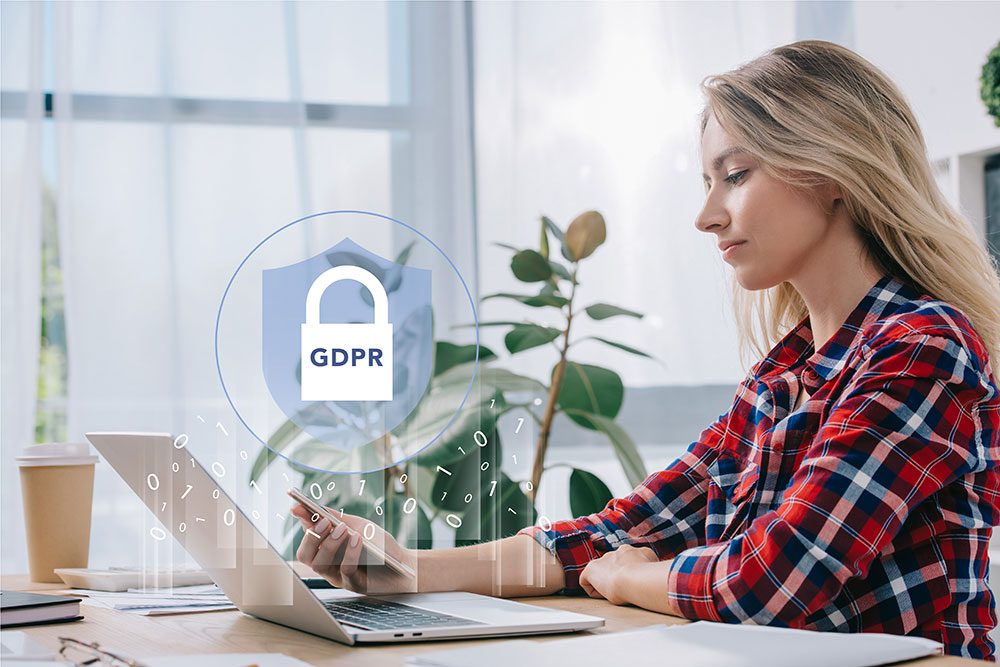
2- Scope and Applicability
A comprehensive data privacy law, the General Data Protection Regulation (GDPR) seeks to protect people’s personal information in the European Union (EU) and the European Economic Area (EEA). Guidelines for the collection, processing, storage, and protection of personal data are outlined in this regulation, which went into force on May 25, 2018. Giving people more control over their own data is the main objective of the GDPR, which introduces a strong legal framework to improve the protection of personal data.
It covers a wide range of companies and organizations, from big corporations to small businesses, that handle or process personal data belonging to citizens of the EU or EEA. In addition to protecting people’s privacy, this rule aims to standardize data protection laws among EU member states, guaranteeing uniformity and equity in the handling of personal data.
Who does GDPR apply to?
A wide range of companies and organizations that handle the personal data of individuals within the European Union (EU) and European Economic Area (EEA) are subject to the General Data Protection Regulation (GDPR), a comprehensive data privacy law. Its main objective is to improve EU citizens’ rights to privacy and data protection. The following situations are covered by GDPR
EU-based businesses
Regardless of size, industry, or sector, any business, organization, or entity doing business in the EU is required to abide by GDPR. Small and medium-sized businesses (SMEs), startups, nonprofit organizations, multinational corporations, and even government organizations that handle personal data fall under this category. GDPR compliance is required whether a business is selling goods, providing services, or just keeping client data in the EU.

Non-EU businesses handling EU data
If an organization located outside of the EU handles or processes the personal data of EU citizens, it must also comply with GDPR regulations. This is especially true for:
- Businesses that sell products or services to people in the EU, including subscription-based services, SaaS platforms, and international e-commerce sites.
- Companies that track the activities of EU users or monitor their online behavior, such as those that interact with EU customers through cookies, analytics software, or targeted advertising.
GDPR basically has an extraterritorial reach, which means that even companies that don’t have a physical location in the EU have to abide by it if they deal with people in the EU and gather their data.
The definition of personal data under GDPR
Any information that can be used to directly or indirectly identify an individual is considered personal data under the General Data Protection Regulation (GDPR). From basic identity information to extremely sensitive personal data, this definition covers a broad spectrum of data types. GDPR creates stringent rules for managing personal data in order to safeguard people’s security and privacy. The following groups are used by GDPR to classify personal data
Basic identifiers
Basic identity information that can be used to identify a person is included in personal data. This includes complete names, including first and last names, and contact information, including phone numbers and email addresses, for both personal and professional purposes. Since home addresses are associated with a particular individual and place, they are also categorized as personal data.
Online identifiers
Online identifiers are essential for protecting personal data in the digital age. These identifiers include cookies, which monitor online activity for advertising and analysis, and IP addresses, which are distinct numerical labels given to internet users. Additionally, people can be identified across various platforms using device-specific data, such as browser fingerprints, MAC addresses, and mobile phone IMEI numbers. Because they grant access to private information and digital services, login credentials—including usernames and passwords linked to personal accounts—also fall under the category of personal data.

Sensitive Information
Because they may disclose personal information about an individual, some forms of personal data are deemed especially sensitive under GDPR. Businesses that handle this type of data must put improved security and compliance procedures in place.
Racial or ethnic origin is one type of sensitive personal data that is frequently used in demographic studies and policy-making. Since they represent a person’s personal affiliations and views, political and religious beliefs are also categorized as sensitive. Another crucial type of data is biometric data, which includes voice patterns, fingerprints, and facial recognition information. This is especially true in situations where identification and authentication technologies are employed.
Because they are confidential, health and medical records—including patient histories, genetic data, and mental health information—need to be protected even more. In a similar vein, the GDPR protects information about sexual orientation and lifestyle choices in order to guard against discrimination and protect individual privacy.
Ensuring Data Compliance
Businesses that handle any of the aforementioned types of personal data are subject to stringent GDPR regulations. This entails putting in place robust security measures, collecting as little data as is required, and guaranteeing that the use of data is transparent. In order to prevent personal data from being kept for longer than necessary, businesses must also set clear guidelines for data deletion and retention.
The goal of GDPR’s enforcement is to uphold people’s fundamental right to privacy while promoting confidence in the digital economy. Businesses that disregard these guidelines run the risk of facing severe penalties and harm to their reputation, underscoring the significance of using appropriate data handling procedures.
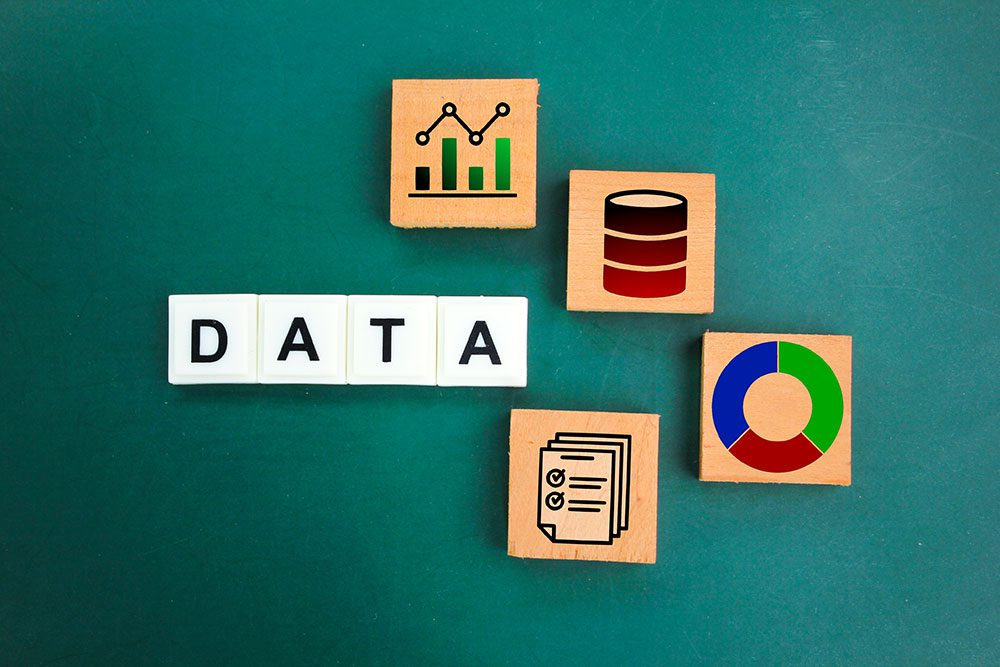
The difference between a Data Controller and a Data Processor
The two primary roles in data handling—the Data Controller and the Data Processor—are clearly distinguished under the General Data Protection Regulation (GDPR). Although both parties must ensure GDPR compliance, the Data Controller bears the main responsibility for risk management and data protection. Businesses that handle personal data must comprehend the distinctions between these roles.
Data Controller
The company or entity that decides how and why to process personal data is known as a data controller. It has the power to determine the reason behind data collection and its intended use. The Data Controller is in charge of making sure that all data processing operations adhere to GDPR, including securing the required consents, putting security measures in place, and overseeing the rights of data subjects.
An example of a data controller would be a bank that gathers financial information from its customers for the purposes of processing loans, managing accounts, and conducting transactions. The bank chooses what personal information is needed, including identification documents, credit history, and income information, and how that information will be handled. Likewise, healthcare facilities, social media sites, and merchants that gather and preserve patient or consumer data
Data Processor
On the other hand, a data processor is a company that handles personal data for a data controller. In contrast to the Controller, the Processor follows the Controller’s instructions rather than making decisions about how the data is used. The Processor is in charge of putting in place sufficient security measures to safeguard the data and making sure that it is handled in accordance with GDPR guidelines.
An illustration of a A data processor is a cloud storage provider that houses a business’s customer database without having any say in how the information is gathered or put to use. Likewise, payment processing firms that manage transactions for banks or online retailers serve as data processors since they oversee the handling of financial data without identifying its
Key Responsibilities and Compliance
GDPR compliance is primarily the responsibility of data controllers, but data processors are also subject to stringent security and confidentiality requirements. Processors must make sure that their systems are safe from intrusions and only process data in accordance with the Controller’s documented instructions. Furthermore, to specify duties and compliance procedures, Controllers and Processors frequently create Data Processing Agreements (DPAs).
Businesses handling personal data must comprehend the differences between these roles because, under GDPR, non-compliance can have serious legal and financial repercussions.
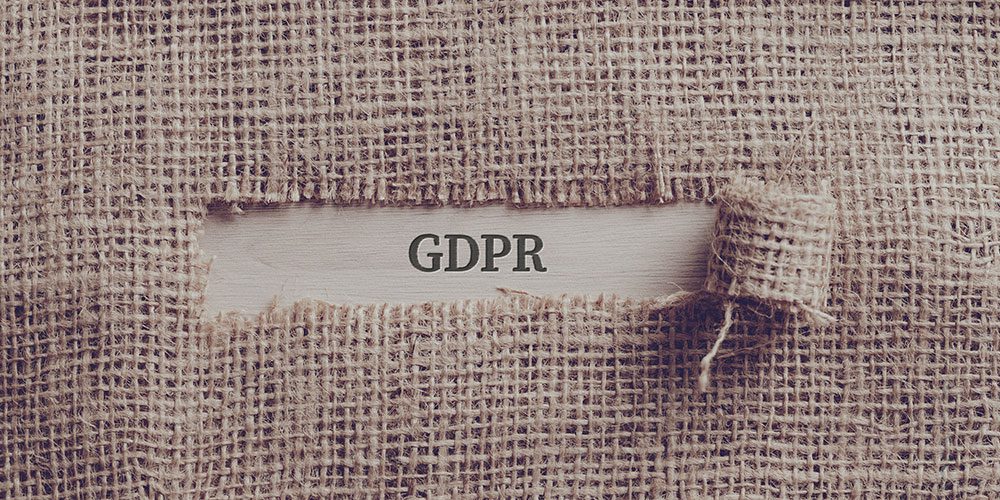
Key industries affected by GDPR
Many industries are affected by GDPR, especially those that depend significantly on personal data to function. Among the industries most impacted are
Technology Sector
Mobile apps, cloud storage providers, social media sites, and online services all need to manage user consent and maintain stringent data security. In order to comply with GDPR, companies such as Microsoft, Google, and Meta (Facebook) have had to update their data handling policies. Clear privacy policies and opt-in procedures for data collection must be provided to users of mobile apps and SaaS platforms.
Healthcare Industry
To safeguard patient records and medical histories, hospitals, clinics, pharmaceutical companies, and telemedicine providers must adhere to strict security regulations. Due to the extreme sensitivity of personal health data, strict access controls, robust encryption, and explicit patient consent are necessary. Patients are guaranteed control over their medical data under GDPR, including the ability to request deletion and access rights.
Financial Services and Banking
Due to their handling of substantial amounts of financial and personal data, banks, insurance providers, and payment processors are frequently targeted by cybercriminals. Strong encryption, fraud detection systems, and open data processing guidelines are required by GDPR. Consumers need to know how their financial information is handled, shared, and stored.
E-Commerce and Retail
Customer names, addresses, payment information, and purchasing habits are gathered by online retailers and e-commerce platforms. GDPR mandates that these companies give users the ability to control their preferences and provide a clear explanation of how customer data is used. Compliance requires the use of cookie consent procedures, data minimization techniques, and secure payment processing systems.
Continue Reading
- Everything About GDPR/ Part 1
- Everything About GDPR/ Part 2
- Everything About GDPR/ Part 3
- Everything About GDPR/ Part 4
Written By: Anshul Jharia


